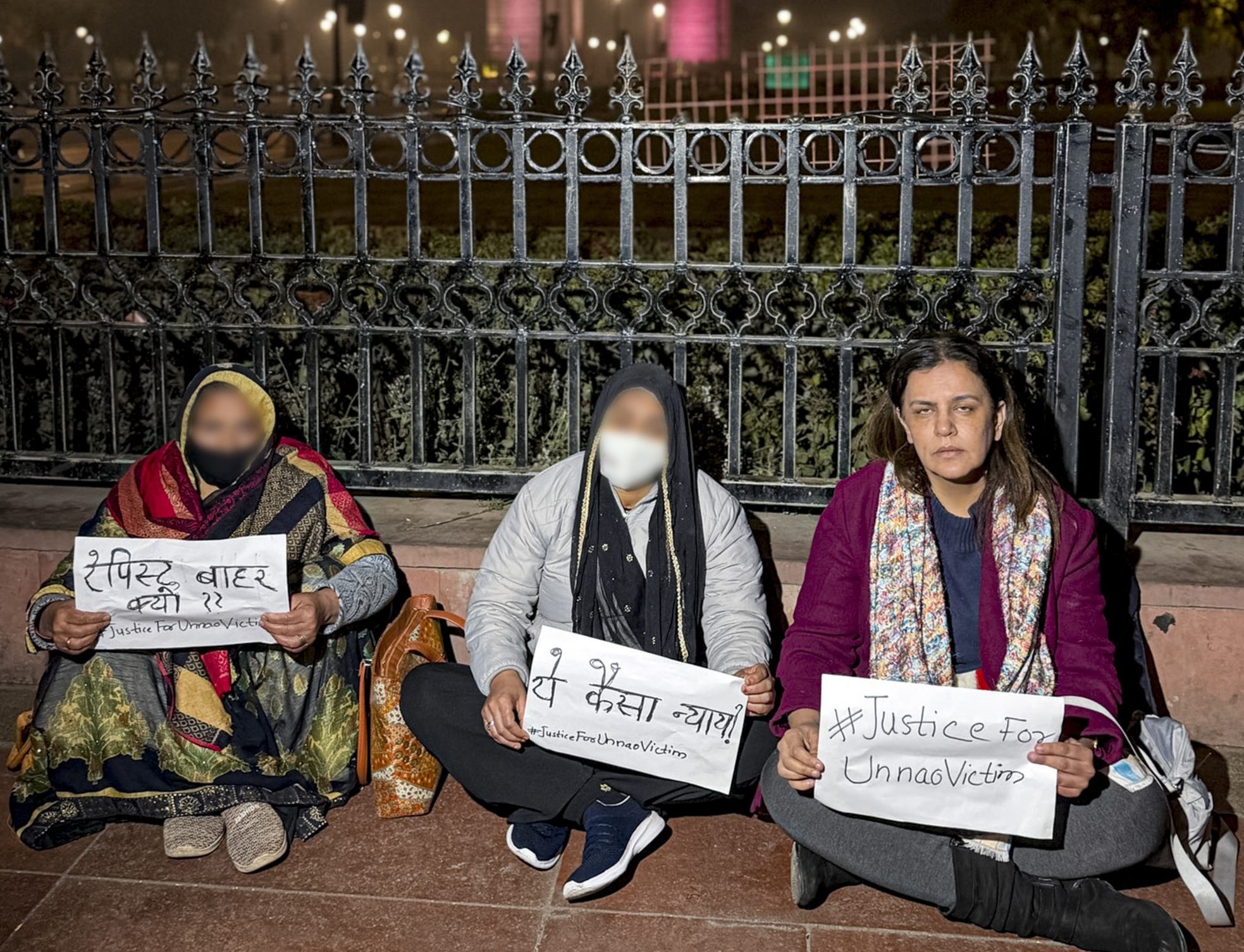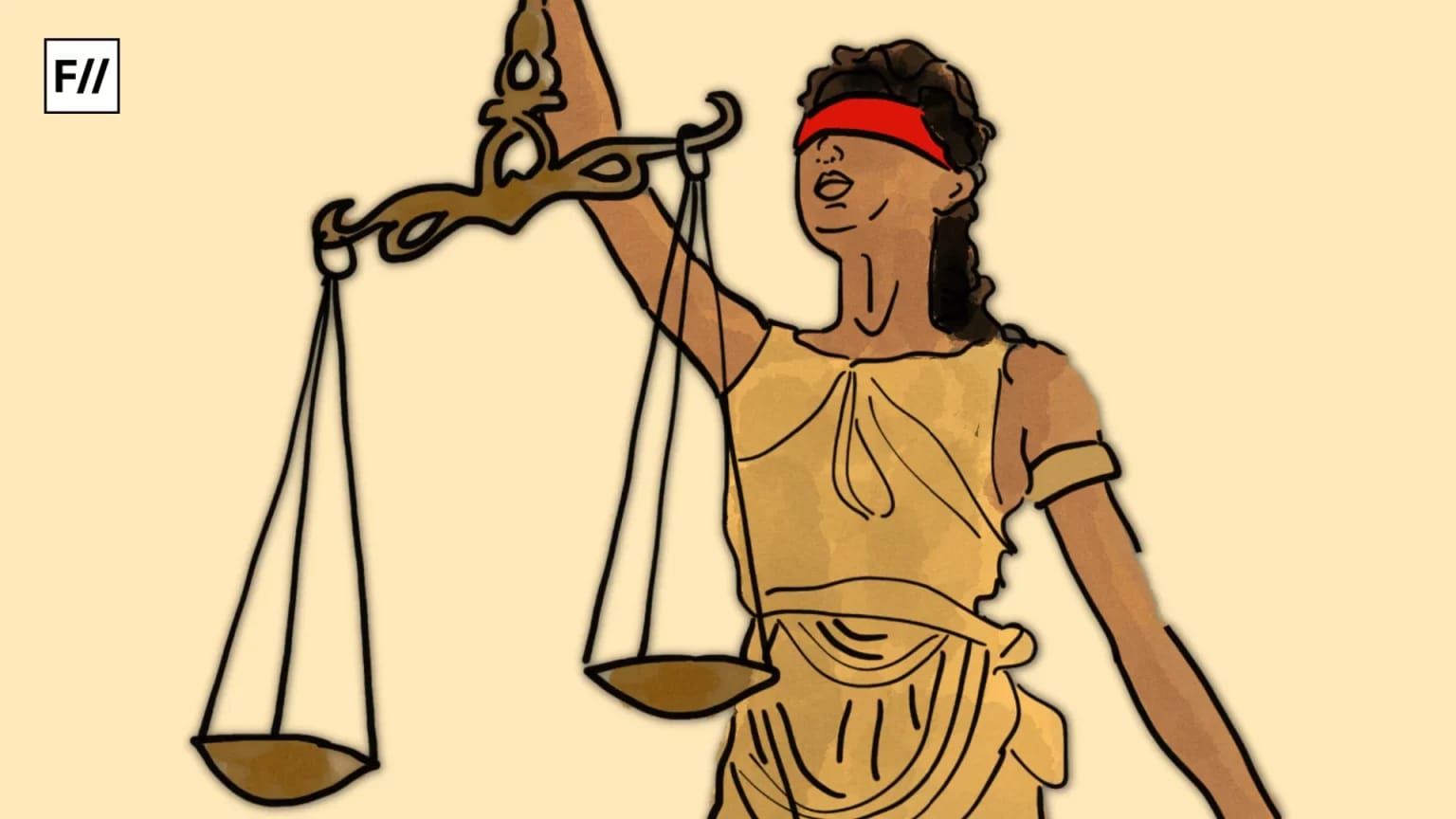Posted by Aniruddha Babar
“All history attests that man has suggested women to his will, used her as a means to promote his gratification, to minister to his sexual pleasures, to be instrumental in promoting his comfort; but never has he desired to elevate her to that rank she was created to fill. He has done all he could to debase and enslave her mind; and now he looks triumphantly on the ruin he has thus deeply injured in his inferior But I ask no favour for my sex. All I ask our brethren is that they will take their feet off from our necks and permit us to stand upright on that ground which God designed us to occupy”. – Sarah Grimke
The Hindu sage, Manu condemned woman to eternal bondage, in fact it is a primary evidence of the origin and genesis of patriarchy in Hindu society. The Greeks, in their period of highest culture imprisoned their women within their houses and denied them all rights. The Spartans often destroyed women who could not give birth to healthy children. Even the ‘most civilised’ empire of Rome granted its women no legal rights. In Rome, husbands had absolute control over their wives and treated them as slaves.
Aristotle and Rousseau branded qualities like modesty, femininity and meekness as womanly and natural for the female sex. The socialist thinkers led by Karl Marx, Engels, and others believed that women had been transformed from free and equal productive members of the society to subordinate wives and wards when humanity entered into an agrarian age which later gave birth to the concepts like institutions of marriage and family which caused further degradation of status of a woman in the society.
Though the modern universal trend is to decriminalize adultery, historically, many cultures have regarded adultery as a crime. The roots of the adultery law can be traced to one of the earliest law codes known, the Code of Ur-Nammu (1900-1700 BC). Verse 6 of the code states that “If a man violates the right of another and deflowers the virgin wife of a young man, they shall kill that male”, and verse 7 states, “If the wife of a man followed after another man and he slept with her, they shall slay that woman, but that male shall be set free.” And this has been a recurring theme in every law that follows.
the laws’ attitude towards women is deeply patronising, seeing them as passive objects like property that can be ‘enticed’ or ‘taken away’.
Moreover, Jewish, Islāmic, Christian and Hindu traditions are all unequivocal in their condemnation of adultery. In most cultures both the man and the woman are equally punishable. However, according to ancient Hindu law, like in ancient Greece and in Roman law, only the offending female spouse could be killed and men were not heavily punished. Lord Macaulay did not consider it fit to put infidelity in his first draft of the Indian Penal Code. Reviewing facts and opinions collected from all the three Presidencies about the feasibility of the criminalization of adultery, he concluded:
“It seems to us that no advantage is to be expected from providing a punishment for adultery. The population seems to be divided into two classes – those whom neither the existing punishment nor any punishment which we should feel ourselves justified in proposing will satisfy, and those who consider the injury produced by adultery as one for which a pecuniary compensation will sufficiently atone. Those whose feelings of honour are painfully affected by the infidelity of their wives will not apply to the tribunals at all. Those whose feelings are less delicate will be satisfied by a payment of money. Under such circumstances, we think it best to treat adultery merely as a civil injury.”
Also read: Adultery, Law And The State’s Interference In Our Privacy
The Law Commissioners in their second report on the draft of the Penal Code, however, took a different view. Disfavouring the Macaulian perception of adultery, but placing heavy reliance upon his remarks on the status of women in India, they concluded:
“While we think that the offence of adultery ought not to be omitted from the Code, we would limit its cognizance to adultery committed with a married woman, and considering that there is much weight in the last remark in Note ‘Q’, regarding the condition of the women in this country, in deference to it, we would render the male offender alone liable to punishment.” Section 497 of the Penal Code reflects the above perception.
In common law the legal personality of a wife submerged into her husband‘s and a married woman was in general understood as incapable of acquiring, holding or alienating any property. The nature and proper timidity and delicacy which belong to the female sex evidently make her unfit for many of the occupations of civil life. Section 497 IPC defines adultery as “sexual intercourse without the consent and connivance of the husband” along with no provision for hearing the version of the wife, the real sufferer, results in grave injustice to her. There are even cases where the husbands connive with the culprits and consent for material gains.
Most of the women do not report the crime due to social compulsions and in the absence of support structures outside the institution of marriage. The long and unending legal process, keeps the women at bay. At the same time, the laws’ attitude towards women is deeply patronising, seeing them as passive objects like property that can be ‘enticed’ or ‘taken away’ – what Supreme Court lawyer Karuna Nundy sees as an example of ‘benevolent patriarchy‘ which disregards women’s sexual choices and agency, and treats the husband as the primary aggrieved party even in a case of rape. Only a husband, or any person in whose ‘care’ a husband has left his wife, can file a case under sections 497 and 498. “These laws are a clear example of how patriarchy operates to the detriment of everyone,” quoted Nundy.
This is nothing but a distorted trespassing law that establishes the wife as the property of the husband.
Adultery might not be the cause of an unhappy marriage; it could be the result of one. The penal law of adultery in India is premised on the one-and-a-half century old caste-based stratified ‘social setting’ in the context of the traditional conservative property-oriented familial ideology and sexual mores which proves by the fact that the woman has been reduced to the mere status of a vessel, or a child-bearing machine.
This is reinforced by the Section 198 of the CrPC. It states “Prosecution for offences against marriage. — (1) No court shall take cognisance of an offence punishable under Chapter XX of the Indian Penal Code (45 of 1860), except upon a complaint made by some person aggrieved by the offence.” And as the aggrieved party can ‘only’ be the husband, a husband can start proceedings against the ‘external adulterer’ – the ‘criminal trespasser’ who illegally trespass the property, that is, the wife of another man, and the criminal proceedings go the same way.
This is nothing but a distorted trespassing law that establishes the wife as the property of the husband. The wife does not have any significant role in the outcome of the case. The Indian law has been known to advocate gender discriminatory and patriarchal lines of thought, and it is crystal-clear that such laws have no place in a modern society which needs to be developed beyond the colonial, discriminatory, narrow mind-set.
From another perspective, a question arises the permissible limit on the intervention of state in the bedrooms of its citizen. It is important to note that, a marriage is both, a sacrament and a civil contract and the society has certain notions about the same. Yet, it is not a standard form of contract. The spouses are and should be at a liberty to choose their own terms of the contract. Therefore, whether they allow each other to have or maintain sexual relations with third parties should be at the sole discretion of the parties alone. With these thoughts a million dollar question arises as to whether there is really a need for a law that ‘criminalises’ consensual sex between two consenting adults.
Moreover, State has no role to play in consensual sex between two consenting adults irrespective of their marital status. Sex outside marriage is definitely a ground for divorce if the aggrieved party desires to consider so but under no circumstances can it be considered as non-civil wrong against society. The sex between consenting adults is beyond the scope and reach of Criminal Jurisprudence.
Also read: Let’s Talk About The Sexist And Archaic Indian Adultery Law
The words that Justice Deepak Mishra blasted while pronouncing the historical judgement regarding the adultery law that will forever echo within the walls of the temple of justice: “Adultery can be ground for any civil wrong. There can’t be any social license that destroys the matrimonial home, but adultery should not be a criminal offence, as wife was not a chattel of the husband and any provision of law affecting individual dignity and equality of women invites the wrath of the Constitution. It’s time to say that a husband is not the master of wife. Legal sovereignty of one sex over other sex is wrong.”
Aniruddha Babar is a former Advocate, Bombay High Court and independent researcher as well as a Freelance Writer with interdisciplinary temperament. He has respectable hold on political and socio-legal philosophy and thought with research interests include International law, Naga Tribal Studies, Dr. Ambedkar’s Thoughts and Philosophy, Applied Politics, Idea of justice, Peace & Conflict Studies, Northeast Studies, Subaltern Studies, People’s Movements and Human Rights. Presently he is pursuing his PhD in the interdisciplinary fields of Law, Governance and Conflict Management. He may be contacted at aniruddha.v.babar@gmail.com
Featured Image Source: Ajanta News
About the author(s)
Guest Writers are writers who occasionally write on FII.




